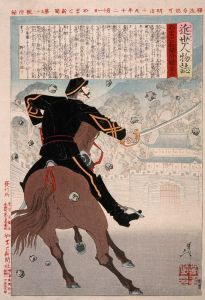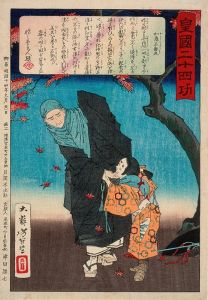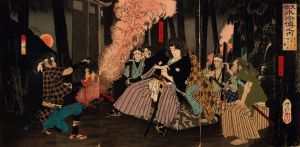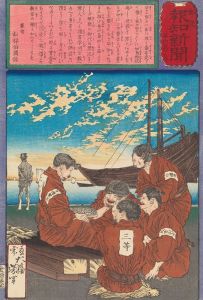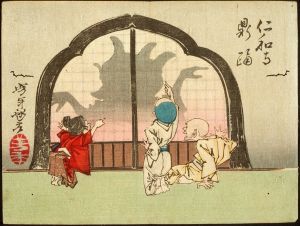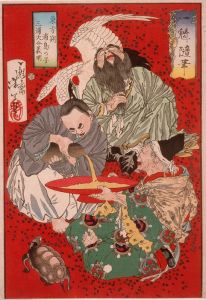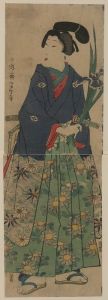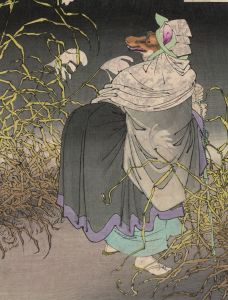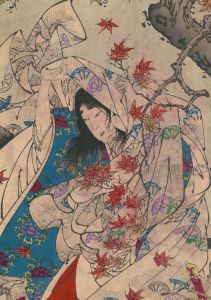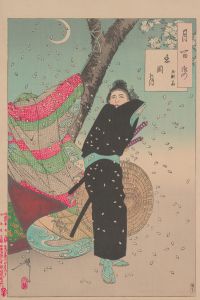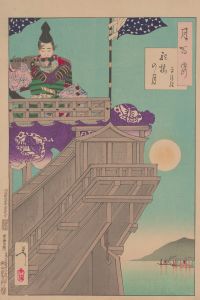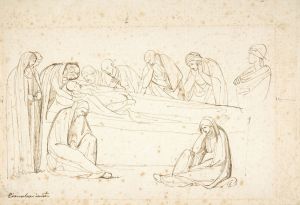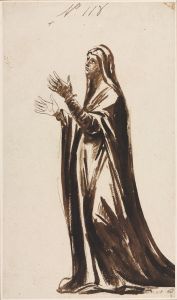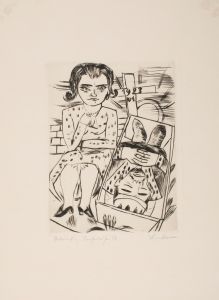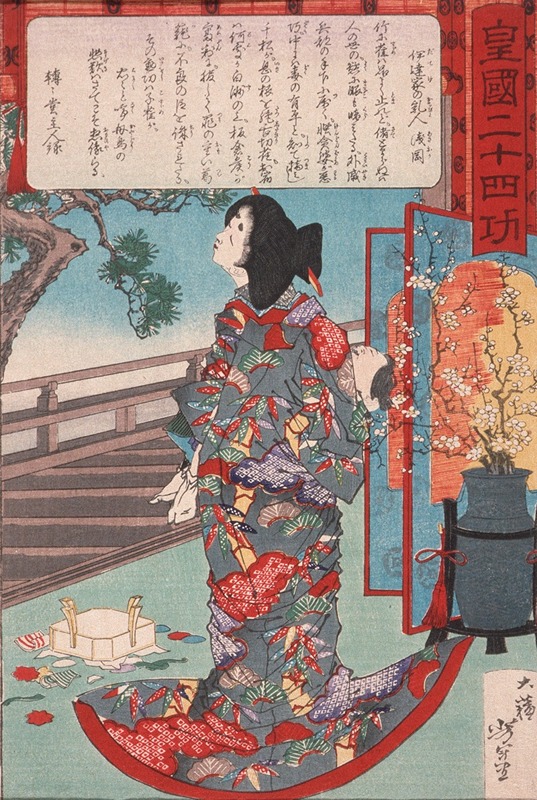
Masaoka, a Wet Nurse to the Date Clan, Holding Her Murdered Child
A hand-painted replica of Tsukioka Yoshitoshi’s masterpiece Masaoka, a Wet Nurse to the Date Clan, Holding Her Murdered Child, meticulously crafted by professional artists to capture the true essence of the original. Each piece is created with museum-quality canvas and rare mineral pigments, carefully painted by experienced artists with delicate brushstrokes and rich, layered colors to perfectly recreate the texture of the original artwork. Unlike machine-printed reproductions, this hand-painted version brings the painting to life, infused with the artist’s emotions and skill in every stroke. Whether for personal collection or home decoration, it instantly elevates the artistic atmosphere of any space.
Tsukioka Yoshitoshi (1839–1892) was a prominent Japanese ukiyo-e artist, renowned for his innovative and dramatic woodblock prints. One of his notable works, Masaoka, a Wet Nurse to the Date Clan, Holding Her Murdered Child, is part of his series New Forms of Thirty-Six Ghosts (Shinkei Sanjūrokkaisen), which was created between 1889 and 1892. This series explores supernatural and historical themes, often blending folklore, kabuki theater, and historical events with Yoshitoshi's distinctive artistic style.
The print depicts Masaoka, a loyal wet nurse serving the Date clan, a powerful samurai family during Japan's feudal era. Masaoka is a figure drawn from Japanese history and legend, celebrated for her unwavering loyalty and sacrifice. In this artwork, she is shown holding the lifeless body of her own child, whom she allowed to be killed as part of a larger act of devotion to her duty.
The story behind the image is rooted in the complex political intrigues of the Edo period. Masaoka's son was murdered as part of a plot to test her loyalty and dedication to the Date family. Despite her personal grief, Masaoka remained steadfast in her service, prioritizing the safety and well-being of her young charge, the heir to the Date clan. Her actions have been immortalized in Japanese literature, kabuki plays, and visual art, symbolizing the ideals of loyalty, sacrifice, and duty.
Yoshitoshi's portrayal of Masaoka is both poignant and haunting. The composition emphasizes her emotional strength, with her calm yet sorrowful expression contrasting with the tragic circumstances. The use of bold lines, intricate patterns, and subtle color gradations highlights Yoshitoshi's mastery of the ukiyo-e technique, as well as his ability to convey deep emotion and narrative complexity within a single image.
This print is a testament to Yoshitoshi's interest in exploring human emotions and moral dilemmas through historical and legendary subjects. It also reflects the broader cultural fascination with loyalty and sacrifice in Japan during the late Edo and early Meiji periods. Today, Masaoka, a Wet Nurse to the Date Clan, Holding Her Murdered Child is regarded as a powerful example of Yoshitoshi's later work, showcasing his artistic maturity and his ability to blend traditional themes with innovative visual storytelling.





